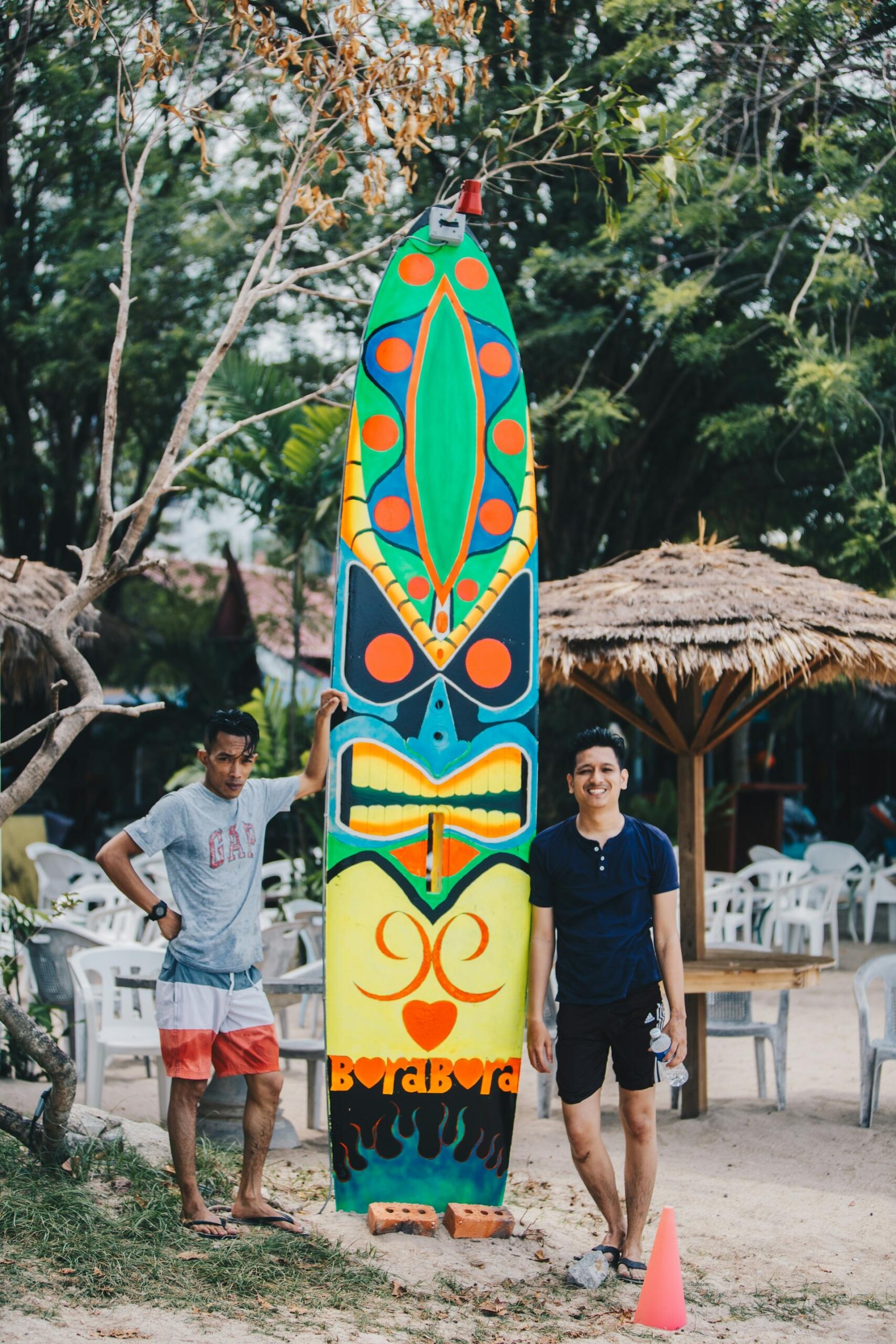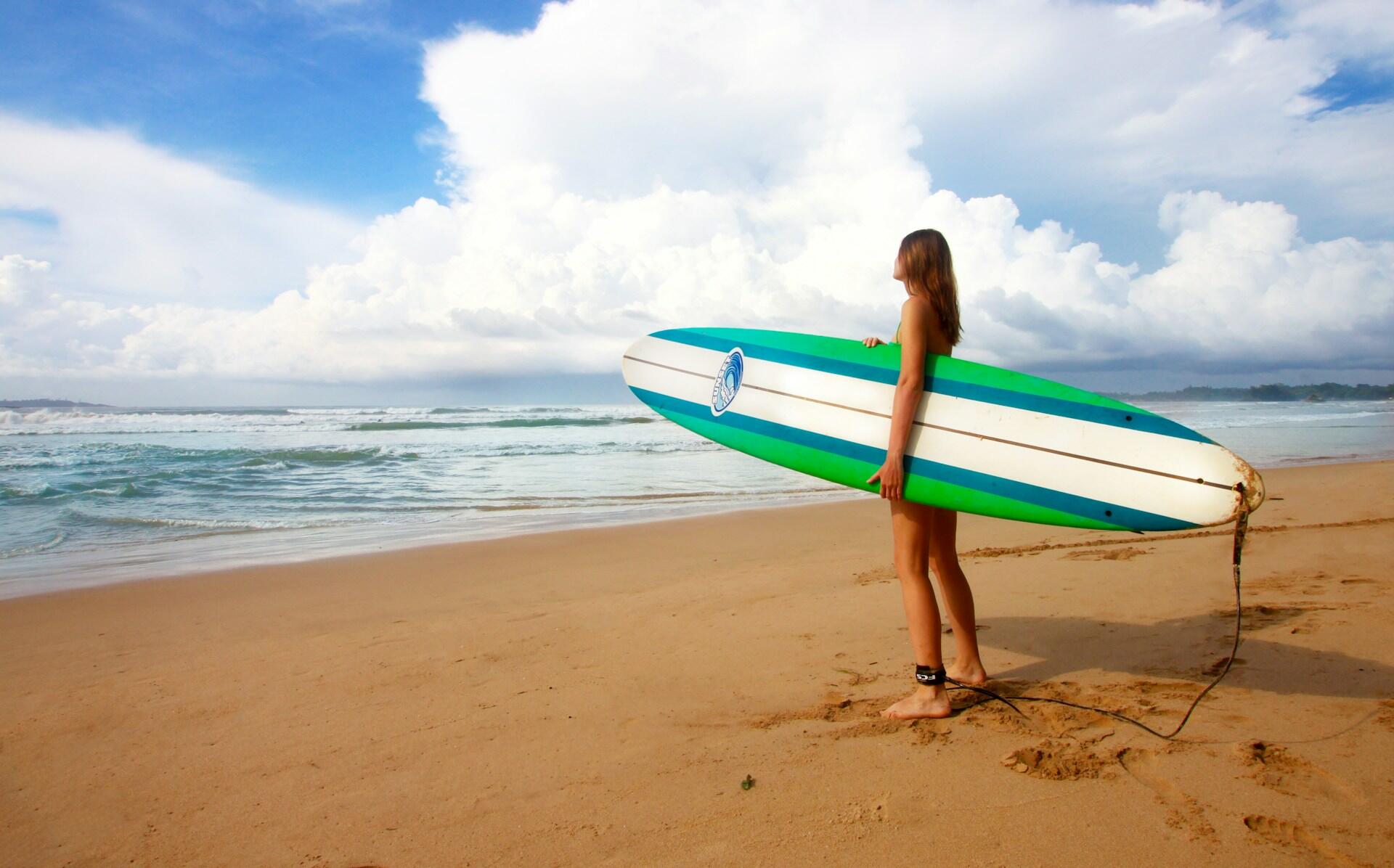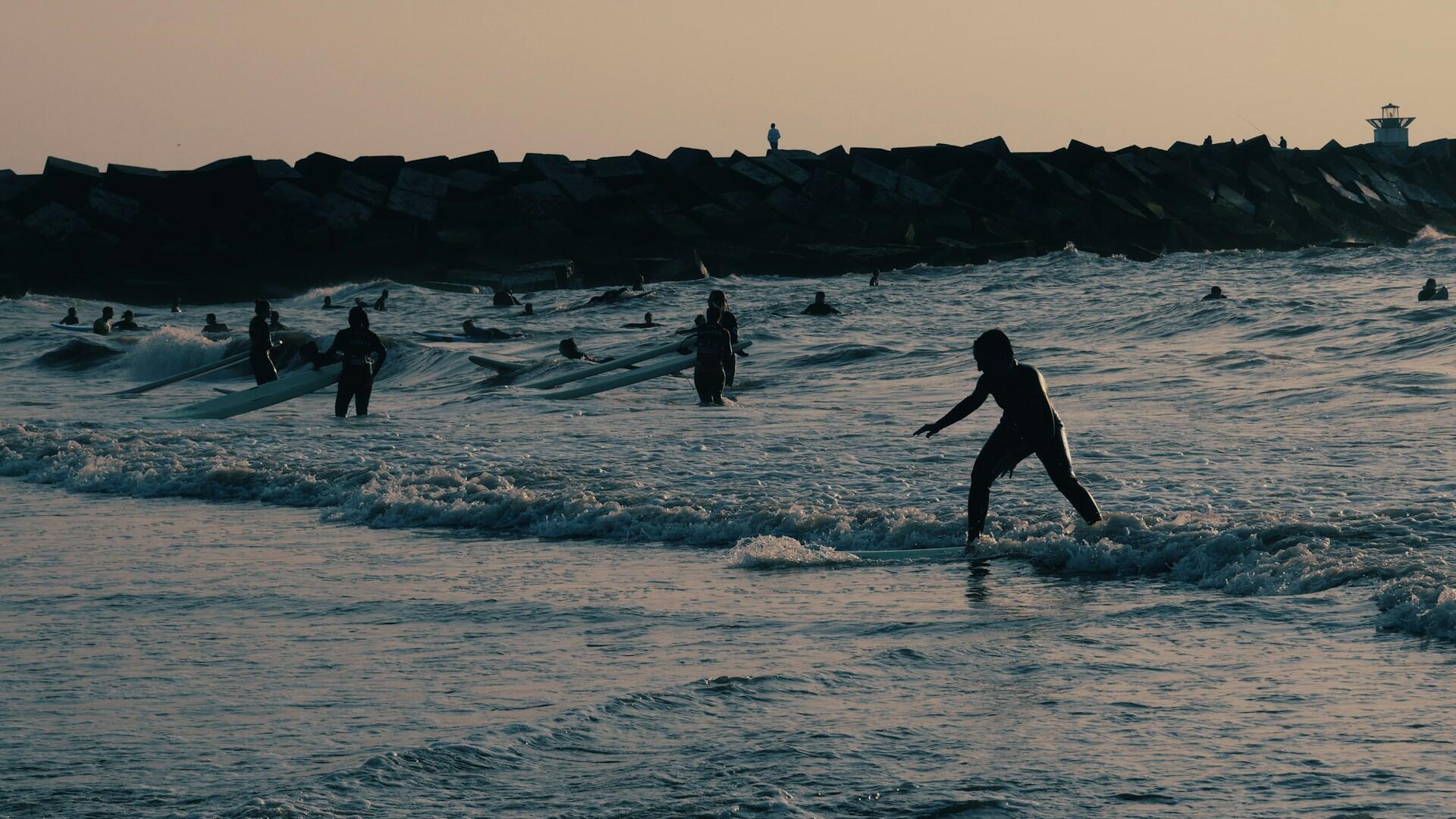Of course, surfing is dangerous, but then, every activity carries risks (even sleeping!), and surfing is no riskier than other sports. So, the question should be, "Am I willing to take the risks so I can reap the benefits of this amazing sport?" That pragmatic perspective sets the tone for this question-and-answer session, which you can see in short form here.
| 🙋♂️ Question | 👨🎓Answer |
|---|---|
| How long does it take to learn to surf? | That depends on your dedication to the sport. |
| How long does it take to get good at surfing? | That also depends on you and your dedication to learning. |
| Is surfing dangerous for beginners? Or; Is surfing safe for beginners? | Every activity carries inherent risks. Shielding yourself from them and learning proper technique minimise those risks. |
| Is surfing harder than Snowboarding, skiing, and skateboarding? | It is a bit harder, in part because you're not gliding over a firm surface. |
| How physically demanding is surfing? | If you're not in shape, it can be very demanding. Otherwise, it's no more so than other sports. |
| Why is surfing so difficult? | A lot goes into surfing, from being able to read surf conditions to mastering surfing skills. |
| Can i learn surfing on my own? | Technically, yes, especially with all the online resources available. Still, it's best to learn the basics with a coach or experienced surfer. |
| Is surfing an expensive hobby? | That depends on how involved you get in the sport. Recreational surfing can be relatively inexpensive. |
| Am i too old to learn to surf? What’s the best age to start surfing? | You're never too old! Technically, there is no 'best age', though learning early has advantages. |
| What equipment do I need to surf? | At the very least, you need a board with a leash, surf wax or a traction pad, and some safety gear. |

How Long Does it Take to Learn to Surf?
As it is stated, that question is too vague to answer. Anyone with a good sense of balance can master staying on a surfboard during their first surfing lesson. By contrast, learning to read the waves takes months, if not years, of experience. With those extremes laid out, we can present a rough timeline of what you can expect to know by a certain time.
After 1 session
Surfing etiquette, beach and ocean safety, an overview of wave conditions.
You'll begin basic surfing movements on the beach.
After a week
Safety measures, surfing techniques, confidence building
Reinforcing paddling and popping up.
After a month
You'll catch whitewater waves.
Begin learning how to manoeuvre.
After 6 months
Taking your place in the line-up.
Demonstrate advanced board control.
After a year
With regular practice, consider yourself an intermediate-level surfer
Begin experimenting with other board styles.
Your first surfing lessons should last between 1.5 and 2 hours. Some of the moves you'll learn include paddling and popping up: going from lying on your belly to standing on your board. By far, the greater focus will be on safety:
- how to read lifeguard flags
- tides and rip currents
- safety signals and practices
- keeping safe in the water
By the end of your first week, you'll have a passing acquaintance with all safety aspects. You'll be well on your way to grasping basic surfing techniques.
By the end of your first month as a surfer, you'll have those down pat, and you'll be on your way to catching your first (small) wave. Six months into learning how to surf, you'll have demonstrable skills and will have proven your commitment to surfing.
Whether you make it through your first month and advance beyond it depends on your desire to learn and your dedication to your sport.
How Long Does It Take to Get Good at Surfing?
This is also a vague question: what does the asker mean by 'good'? Recreational surfing 'good' can be yours in as few as six to eight months of dedicated learning. Competition 'good' takes years of practice and a lifetime of continuous learning.
Focusing on the end goal of 'getting good' robs you of the pleasure of learning and the joy of your body working so beautifully.
Is Surfing Safe for Beginners?
Obviously, it must be! Otherwise, we'd have no surfers.

Surfing is a centuries-old practice, defined and refined by Polynesian peoples. Long ago, they would take to the seas on simple carved longboards, paddling out to where the fish and other marine life were abundant. Once they secured their day's catch, they rode the waves home.
Those long-ago surfers didn't have so much as a fin on their boards to stabilise and control their surfing. Fins, soft coverings, and other safety features (leashes, goggles, etc.) didn't become a part of the basic surfing equipment catalogue until the mid-20th century.
Today's surfing practice still carries inherent risks, as all human activities do. However, surfing professionals and the industry, as a whole, have gone to great lengths to make surfing as safe as possible. As a beginner surfer, you'd be wise to follow their teachings.
Footnote: we're being quite arrogant in suggesting that Polynesian peoples surfed only to get to their favourite fishing spots. They also surfed for fun and for religious ceremonies.
Is Surfing Harder Than Other Board Sports?
Short answer: yes. When you surf, you're standing on a relatively thin, narrow plank that glides across an ever-shifting surface.
By contrast, skateboarding, snowboarding, and skiing all take place with terra firma under your feet. Unless you encounter an avalanche or earthquake (please don't!), you're not likely to face the same conditions practising earthbound sports as you do on your board at sea.
This point brings up a crucial safety aspect for all these board sports: reading the conditions. Experienced skiers and snowboarders would never dream of heading out without first checking the ski forecast for their area. Likewise, savvy surfers consult surf forecasts to predict conditions in their surfing spot.

Otherwise, all the board sports carry a degree of risk and demand a level of skill to assure their athletes' safety. However, consider this point: if you tumble off your surfboard, you land in water. That's a much softer landing than a mountainside or pavement, right?

How Physically Demanding Is Surfing?
Standing on the beach, you might be awestruck watching surfers paddle out to the line-up, tread water until their wave forms, and then pop up and balance on their boards.

Surely, they must be the masters of fitness! But appearances can be deceiving; surfing is less strenuous than many sports. As long as you're reasonably fit, you should be able to surf with no problems.
With that out of the way, note that you should do specific conditioning exercises to prepare you for surfing. Besides swimming, those include:
The bottom line is: if you already have a fitness routine, you only need to add a few exercises to get yourself surf-fit. If you've been away from your fittest self for a time, it's best to build your conditioning before beginning surf lessons.
Why Is Surfing So Difficult?
Everything is difficult if you've never done it before. As an absolute beginner, you're justified in asking this question. But, again, we need to shift the perspective.
Surfing's difficulty is a matter of perception. If you follow seasoned professionals' advice, as given in the clip below, your perception of surfing's difficulty will change.
Can I Learn Surfing on My Own?
The two clips in this article hint at a much larger collection of tutorials available online. You can learn how to surf by watching videos, reading articles on popular surf websites, and subscribing to top surfing podcasts.
You might even join discussions about surfing on various chat boards. That's a great way to pick up tips from experienced surfers and, perhaps, hear a few encouraging words about how to learn to surf. However, nothing takes the place of learning how to surf in person, with a coach.
Is Surfing an Expensive Hobby?
It can be. But if you use a bit of common sense, you can get by with only a minimal investment. At least, at the start.
- As a beginner surfer, your surfing school likely has a collection of boards to train with, so you don't need to rush out and buy your own just yet.
- With no board of your own, you don't need to worry about buying fins, either.
- Many surfers wear wetsuits, but those aren't strictly necessary if you surf in warm waters.
Those are the most expensive items on surfers' shopping lists. They're also the most crucial (except for the wetsuit). You will eventually have to buy at least one surfboard and some fins. Depending on your selections, those could cost serious money.
Buying safety equipment is non-negotiable.
You must have a leash, surf wax, and a first aid kit.
Fortunately, these items don't cost very much.
"Am I Too Old to Surf?" and Other Age-Related Questions
You are never too old to do anything you set your heart and mind to. That includes learning a new language, mastering new skills, and surfing. With that said, you should be aware of two major points:
You may need more time to master basic surfing skills.
You may have to work a bit harder to ensure a suitable fitness level.
As noted above, if you are already reasonably fit and have no trouble moving quickly, your future surfing exploits await. Now, to tackle the other dominant age-related question.
In physical age and actual years, there's no such thing.
The best age to start surfing is when you can commit to the sport and stick with it.
What Equipment Do I Need to Surf?
Flashing back to ancestral Polynesian surfers, all you truly need to surf is a board. From that perspective, all the equipment you see in today's surfing guides and magazines could be considered optional. Except for safety equipment.
Summarise with AI:















